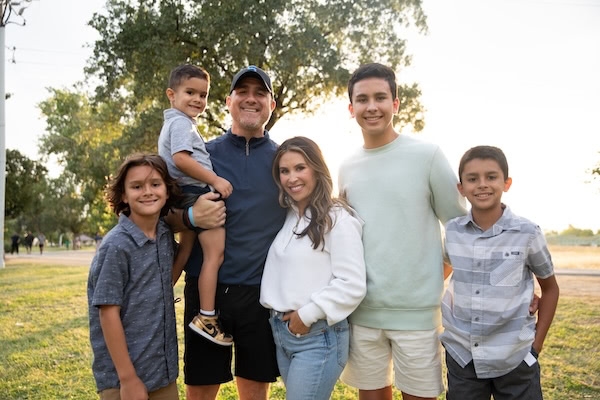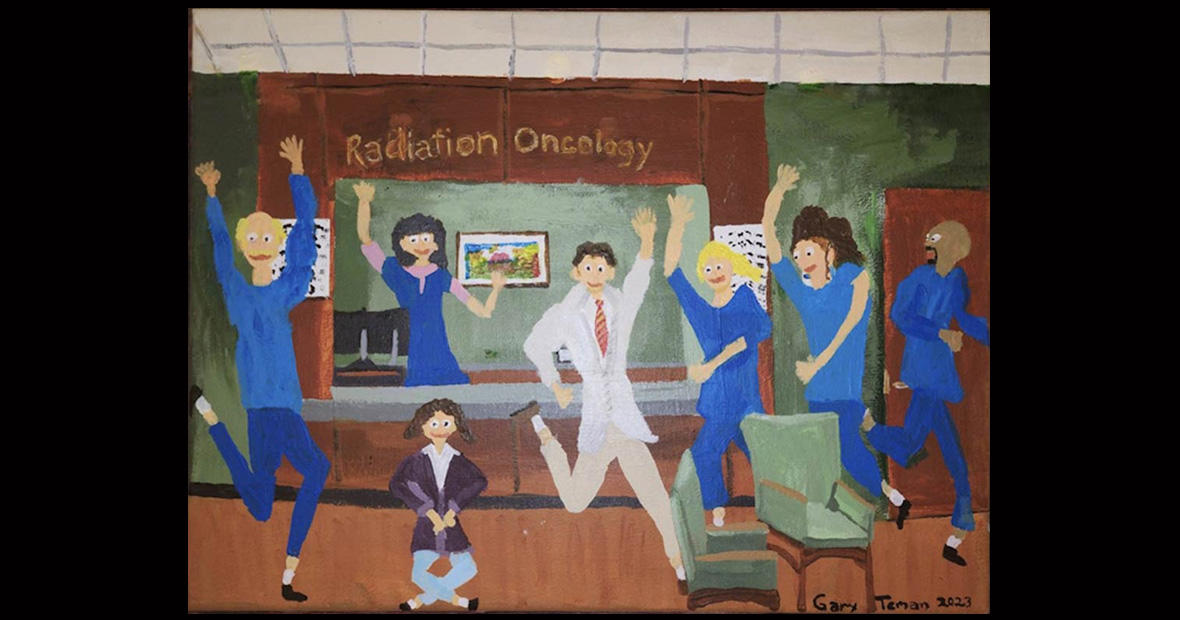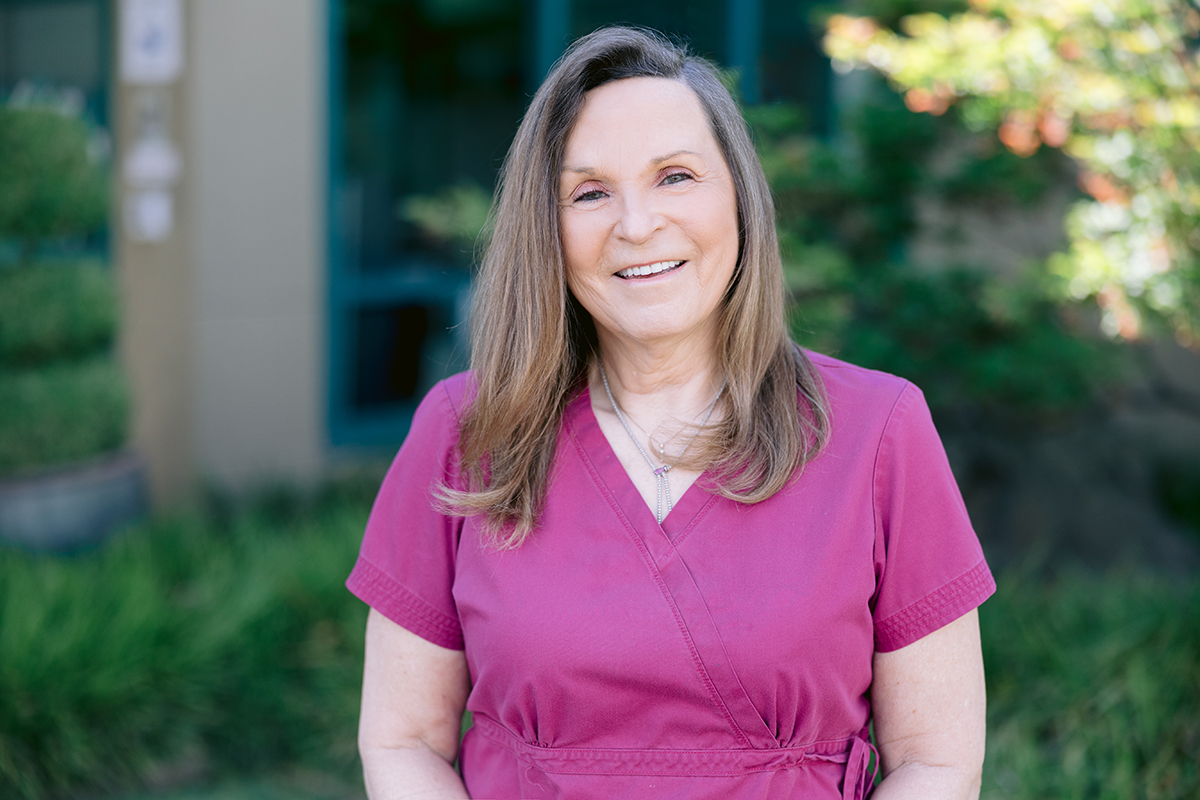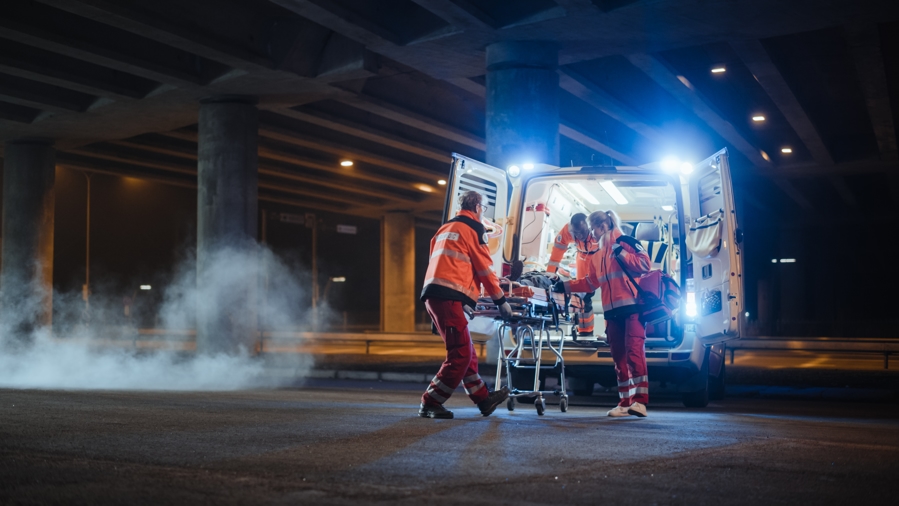In the Family: Taking Action Against Hereditary Cancer
Oct 30, 2023

Understanding her genetic risk empowers Valerie Mendiburu to take steps against cancer.
Valerie Mendiburu never thought cancer was in her future. “We never had any type of cancer that ran in my family,” the 40-year-old Bakersfield resident says. But when her gynecologist recommended that she undergo genetic testing to determine her hereditary cancer risk back in 2018, she agreed to try it.
Valerie met with a genetic counselor at the AIS Cancer Center. “We talked about my family history,” she says. “We did labs so they could determine if I carried any genetic mutations.”
Soon, Mendiburu received unexpected news: She had tested positive for PALB2, a genetic mutation that gives carriers a 35 percent higher chance of a breast cancer diagnosis by age 70 than those without the gene.
“I remember crying the whole way home from my appointment,” she says. “I gave myself that time, and then I said, ‘OK, we can do hard things.’”
An inherited risk
Up to 10 percent of cancer cases are due to DNA changes passed down from one generation to the next. And while Mendiburu didn’t know of anyone in her family who had experienced breast cancer, that was about to change. The same summer she learned that she was a carrier of the genetic mutation, her mother, great-aunt and cousin were all diagnosed with breast cancer.
Mendiburu says that although learning she has a high risk of cancer was overwhelming, she’d rather know than avoid the truth. “The unknown is scarier to me,” she says. “Now that I know, I feel confident. I know what to expect and what the process looks like.”
Read More: Cancer and Your Family Tree
Planning for prevention
Armed with the knowledge of her hereditary cancer risk, Mendiburu consulted with cancer experts to determine a plan for regular screening. “I go in every six months for a breast exam, and I have a mammogram, MRI and ultrasound every year,” she says. Frequent in-depth imaging of the breasts means that if Mendiburu does develop breast cancer, providers can identify it early, when it is more easily treatable.
She has all her imaging done at Quest Imaging, part of Adventist Health in Kern County. “I love that everything works together. I don’t have to go get records and send them to my doctor, because it’s all connected,” she says. “Every doctor, radiologist, surgeon, oncologist — they all work together to get a comprehensive look at each person’s health.”
Mendiburu is currently discussing the timing of her prophylactic mastectomy, in which she’ll have both breasts surgically removed to reduce her risk of developing cancer. She met with Francesca Hoehne, MD, a breast surgeon at the AIS Cancer Center, to plan her operation, which will probably be in early 2024.
“My mom had a double mastectomy, so I know from her experience that the pain and recovery is a lot, but it’s a really important step to take,” Mendiburu says, adding that her mother is now in remission. “Ultimately, I know I’m in great hands.”
Read More: Genetic Testing and Understanding Hereditary Breast Cancer
Full circle
Her experience working with Dr. Hoehne and the team at the AIS Cancer Center has had a big impact on Mendiburu. “I believe in what they’re doing so much that I started working for the cancer center,” she says. She is now a physician liaison, promoting its services to providers in Kern County.
Mendiburu hopes more people will opt for genetic testing, regardless of whether they believe they have a family history of cancer. “We can really learn what’s ahead in our future, and there’s something so empowering about knowing what comes next in your life,” she says. “I hope more women put their health first.”
Watch Valerie tell her story in her own words


